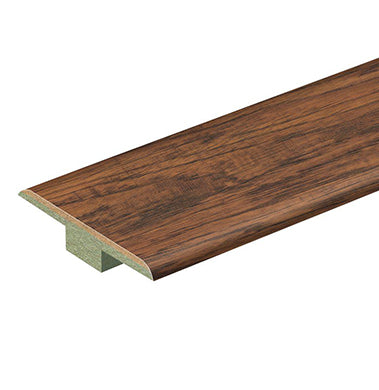Vinyl vs Laminate - Which one is better?

When it comes to choosing flooring for your home or business, there are many options available. Two popular choices are vinyl and laminate, and both have their own unique features and benefits. In this blog post, we will explore the differences between vinyl and laminate flooring, and discuss which one might be the better choice for your space.
Vinyl flooring is a popular option that is known for its durability and versatility. It is made from synthetic materials, such as PVC or polyurethane, and it is available in a wide range of styles, colors, and textures. Vinyl is water-resistant, making it a good choice for kitchens, bathrooms, and other high-moisture areas. It is also easy to clean and maintain, and it is relatively inexpensive compared to other flooring options.
One of the main advantages of vinyl flooring is its versatility. It is available in a wide range of styles, including luxury vinyl plank (LVP) that mimics the look of hardwood, and vinyl tile that mimics the look of ceramic or stone. Vinyl can also be printed with a wide range of patterns and designs, allowing for a wide range of design options.
Another advantage of vinyl flooring is its durability. Vinyl is a tough and resilient material that can withstand heavy foot traffic and frequent cleaning. It is also resistant to scratches, dents, and other types of damage, making it a good choice for high-traffic areas.
One potential disadvantage of vinyl flooring is that it can be prone to peeling or tearing if it is not installed properly.
Laminate flooring is another popular choice for many homes and businesses due to its durability and versatility. It is made from a composite material consisting of several layers, including a wear layer, a decorative layer, and a core layer. The layers are fused together under high pressure, creating a strong and stable flooring material.
One of the main advantages of laminate flooring is its durability. The wear layer on top of the laminate is designed to resist scratches, dents, and other types of damage, making it a good choice for high-traffic areas. Laminate is also resistant to water, stains, and fading, making it easy to maintain and clean.
Another advantage of laminate flooring is its versatility. Laminate is available in a wide range of styles, including wood-look, stone-look, and tile-look. It is also available in a range of colors and patterns, allowing for a wide range of design options.
A third advantage of laminate flooring is its cost. Laminate is typically less expensive than other flooring options, such as hardwood or tile, making it a budget-friendly choice.
Despite its many advantages, laminate flooring also has some potential disadvantages. One disadvantage is that it can be prone to warping or swelling if it is exposed to excessive moisture. Laminate is water-resistant, but it is not waterproof, so it should not be installed in areas with frequent or standing water.
Another potential disadvantage of laminate flooring is that it is not as durable as other types of flooring, such as hardwood or tile. While laminate is resistant to scratches and dents, it can still be damaged if it is not properly cared for. It is also not as heat-resistant as other types of flooring, so it may not be the best choice for areas with high temperatures or direct sunlight.
In summary, laminate flooring has many advantages, including its durability, versatility, and cost. However, it also has some potential disadvantages, such as its susceptibility to moisture and its limited durability compared to other types of flooring. It is important to carefully consider the






